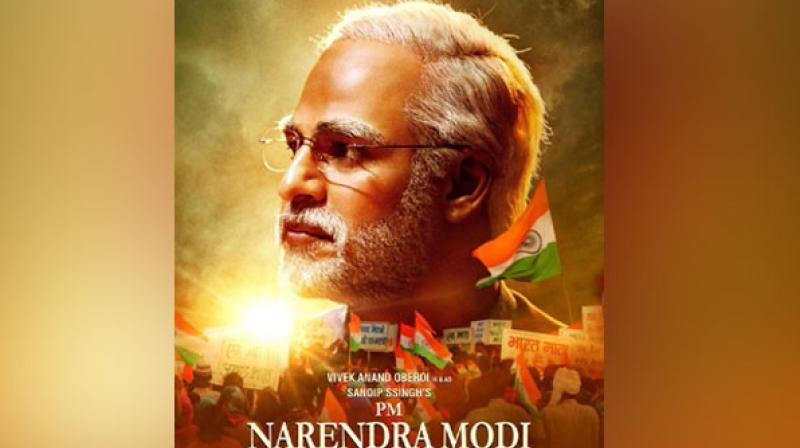SC refuses to interfere with EC\'s order banning release of Modi biopic until May 19
The EC has said that there are several scenes depicting a major opposition party as corrupt and showing them in poor light.

New Delhi: The Supreme Court Friday refused to interfere with the Election Commission's order banning release of the biopic on PM Narendra Modi until May 19.
A bench headed by Chief Justice Ranjan Gogoi said it was not inclined to entertain the application filed by producers of the biopic challenging the EC's order. "What survives in this now?" the bench, also comprising Justices Deepak Gupta and Sanjiv Khanna, said.
The counsel, appearing for film producers, told the bench that the EC's order is contrary to the clearance given to the movie by the Central Board of Film Certification (CBFC). "The issue is whether the movie can be exhibited at this time. The Election Commission has taken a decision. We are not inclined to entertain this," the bench said.
The EC had on April 22 submitted its detailed report to the top court on the biopic, saying the film was a "hagiography", which treated the subject with undue reverence, and its public screening during poll campaign would "tilt the electoral balance". The poll panel had said in its 20-page report that the biopic "produces a political environment where an individual acquired cult status" and its public screening during the period when model code of conduct is in operation would favour a particular political party.
The EC said "there are several scenes depicting a major opposition party as corrupt and showing them in poor light. Their leaders have been depicted in such a manner that their identification is clear and obvious to viewers." It said that the biopic was more than a biography and was a "hagiography" (which treats the subject as saints and gives undue reverence) and the construct of the movie was "unabashedly uni-dimensional", which puts an individual on a higher pedestal through use of specific symbols, slogans and scenes.
The report was submitted after the apex court had on April 15 directed the EC to re-examine its earlier order and take an informed decision on banning pan-India the release of the biopic after watching the full movie. The court had asked the poll panel to provide its report to the producer of the movie. The EC had on April 10 stalled the release of the film until the polls end, asserting that any biopic material with the potential to disturb the level-playing field during elections should not be displayed. The commission, in a separate order, had also directed the producers "not to exhibit the film titled 'PM Narendra Modi' till further orders".
The film was earlier set to release on April 11. Acting on the complaints of political parties, including the Congress, the poll panel had also said that any poster or publicity material concerning any such certified content, which either depicts a candidate (including prospective) for the furtherance (or purported to further) of electoral prospects, directly or indirectly, shall not be put on display in electronic media in the area where MCC is in force.
The Left had also opposed the release of the film, saying it would disturb the level-playing field for other parties in the election and was in violation of the Model Code of Conduct.
The Modi biopic, starring Vivek Oberoi, has been the most-talked about movie this election season. Directed by Omung Kumar, it tells the story of Modi's rise to power from humble beginnings. The apex court had on April 9 disposed of a petition filed by a Congress leader Aman Panwar seeking a stay on the release of the biopic, saying the Election Commission would be an "appropriate" place to seek the redressal.
The apex court had said it was not entertaining the petition for the stay on the release of the film which would be "premature" in view of the fact that the movie is yet to be certified by the Censor Board. It said even if the film is released on April 11, as claimed by the Congress leader, it will be appropriate for him to seek a redressal from the Election Commission.

